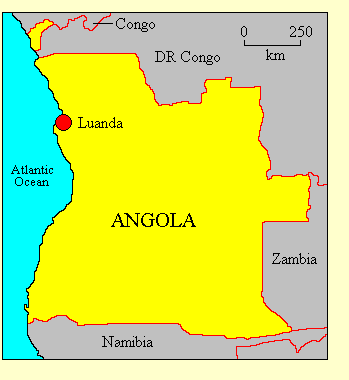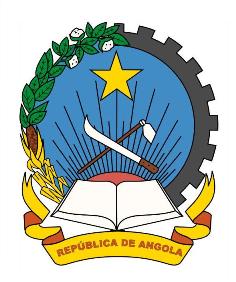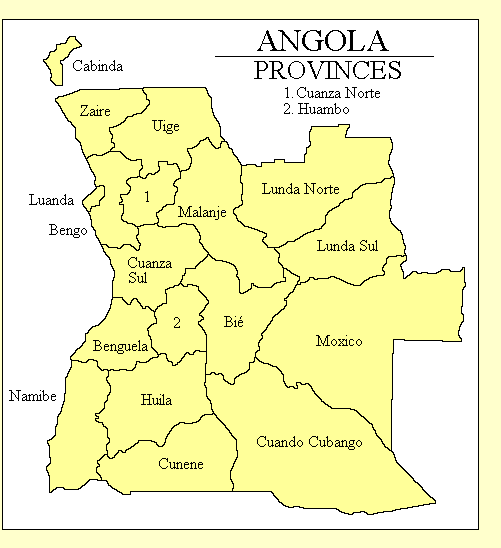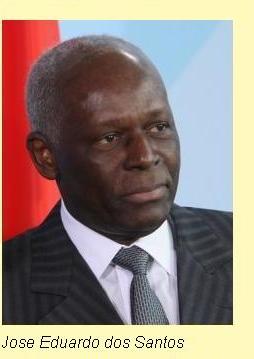

REPUBLIC OF ANGOLA
• Official name: Republica de Angola (Republic of Angola)
• Location: Southern Africa
• International organisations: African, Caribbean and Pacific Group of States, African Union,
Non-Aligned Movement, United Nations, World Trade Organisation.
• Borders: Congo (Democratic Republic), Namibia, Zambia
• Coastline: South Atlantic Ocean
• Land area: 1,246,700 Km2
• Population: 18,500,000
• Annual GDP (PPP) per capita: US$8,900 (2009 CIA estimate). World ranking: 90
• Ethnicity: Over 95% of the population are of African stock, the three largest
ethnic groups are the Ovimbundu (37%), the Kimbundu (25%), and the Bakongo (13%).
There are small mestico (mixed European and African) and European populations.
• Languages: Portuguese is the official language and is the language of government,
business and the media. Many African languages are spoken, corresponding to the ethnic
groups listed above.
• Religion: Christian 53% (Catholic 38%, Protestant 15%), indigenous beliefs 47%.
• Form of government: Presidential republic. Angola is divided into 18 provinces.
• Capital: Lunada
• Constitution: The new
Constitution of the Republic of Angola came into effect on 30 January 2010.

• Head of state: The President, elected by the National Assembly for a five-year term, with a limit of two terms.
• Head of government: The President appoints a Vice-President, who will act as Prime Minister.
• Legislature: Angola has a unicameral legislature, the
National Assembly (Assembleia Nacional), which
has 220 members elected for four-year term. Under Angola's new election law, 130 deputies are elected by nationwide party-
list proportional representation. In addition, each of the 18 provinces
elects five deputies by proportional representation regardless of population,
making 90 deputies.
• Electoral authority: Elections are conducted by the National Elections Commission.
• Freedom House 2011 rating: Political Rights 6, Civil Liberties 5
• Transparency International Corruption Index: 28.5% (104 of 178 countries rated)
• Reporters Without Borders Press Freedom 2010 Index: 28.5% (104 of 178 countries rated)
• Heritage Foundation Economic Freedom 2010 Index: 46.2% (161 of 179 countries rated)
Political history
The Portuguese were established at Luanda in 1599, and established a colony based on
the slave trade. When this was abolished the colony languished, and it was not until
1917 that a regular colonial administration was established. During the Salazar
dictatorship in Portugal, European settlement in Angola was encouraged, and a small class
of white plantation-owners ruled over the African population in feudal style.
Armed resistance to Portuguese rule began
in 1961, when it became clear that they were not going to follow the other
colonial powers and depart voluntarily. But the nationalist forces were divided between the
Marxist MPLA and the anti-Communist UNITA and FNLA groups, and made little headway. The April
1974 revolution in Portugal ended the colonial war, and Angola became independent in
November 1975.
Civil war immediately broke out between the MPLA and UNITA, and by 1976 the MPLA
had control of most of the country, with the assistance of Cuban troops. A one-party
semi-Communist regime was established, headed first by Agostinho Neto and after his
death in 1979 by Jose Eduardo dos Santos. UNITA, led by Jonas Savimbi and
assisted by South Africa, continued resistance in the south.

The simultaneous end of the cold war and of the apartheid regime in South
Africa made a resolution possible. The MPLA abandoned Communism and in 1992
the constitution was amended to allow democratic politics. In September 1992 free
presidential elections were held, in which dos Santos defeated Savimbi. But Savimbi
refused to accept the result and the civil war continued. The elections scheduled for
1997 were cancelled.
Following Savimbi's death in March 2002 the civil war came to an end. After many delays, legislative elections were held
in September 2008. Presidential elections were promised, but the new Constitution which came into effect in 2010
provides for the president to be chosen by the National Assembly after each legislative election.
Angolan politics are still dominated by the
Popular Movement for the Liberation of Angola (MPLA), which now presents itself as a democratic socialist
party. The main opposition party is the
National Union for the Total Independence of Angola (UNITA), but since Savimbi's death it is not clear
what the party now stands for. The only other significant party is the Social Renewal Party (PRS).
Freedom House's 2011 report on Angola says:
"Angola is not an electoral democracy. Long-delayed legislative elections held in September 2008, while largely reflective of the
people's will, were not free and fair; presidential elections have not been held since 1992. The 220-seat National Assembly, whose
members serve four-year terms, has little power, and 90 percent of legislation originates in the executive branch...
Corruption and patronage are endemic in the government, and bribery often underpins business activity...
Despite constitutional guarantees of freedom of expression, journalists are driven to self-censorship by the threat of dismissal, detention, and prosecution...
The constitution guarantees freedom of assembly and association. Increasingly, authorities are allowing opposition groups to hold demonstrations in Luanda, though crackdowns are common in the interior...
The judiciary is subject to extensive executive influence, though courts occasionally rule against the government. "
Updated December 2009
|


